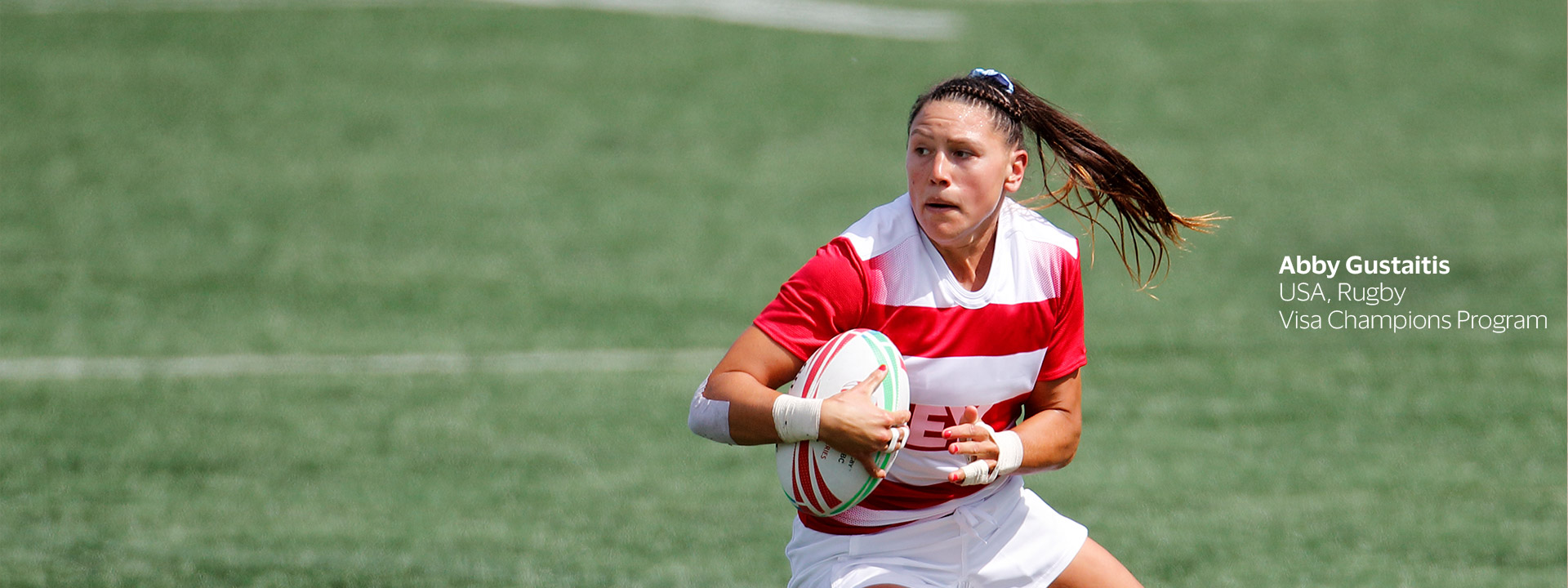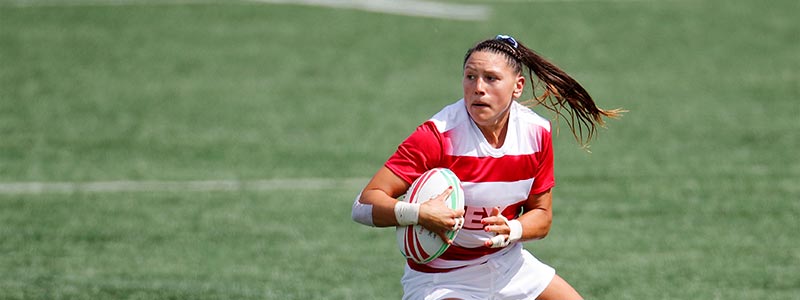

Abby Gustaitis started playing rugby in college, to make friends and build a social life among the 40,000 students that made up her alma mater.
“I had zero idea it was an Olympic sport,” she said. “I just fell in love with the sport, and in my senior year, I became a Collegiate All-American.”
But when the team roster for the Olympic Games Rio 2016 was posted, Abby’s name wasn’t on it.
“It absolutely crushed me,” she recalled. “I had a few months to absorb those emotions and sit with them and decide what I wanted to do.”
She took a break from elite-level rugby and started playing club level, reminding herself that the challenges and the people were why she became passionate about the sport in the first place.
“That's what propelled me to stick with it and give it another shot,” she said.
Making history
By 2019, at a world competition in Biarritz, France, Abby was back, and the U.S. women’s team won their first-ever gold medal. They came back again the following season and won again on their home turf in Colorado.
Hard work and skill are critical to on-the-field success, but there was something unique about this team going into competition that set them apart.
“Chemistry,” said Abby. “We were such great friends. Our bond just strengthened so much off the pitch that it translated really well onto the field. When you have that level of trust and understanding of your teammates, I think the flow just naturally comes out.”
When it came time for the Olympic Games Tokyo 2020, Abby’s name was on the roster — as team captain.
“The feeling of going to my first Olympic Games is indescribable,” she said. “There’s a lot of pride associated with it. That's all you want to do, right? You want to make your friends and your family proud. And to pull on a USA jersey was just such an all-consuming feeling.”
Last one off of the pitch
As a team captain, Abby would be the last athlete off of the pitch — as a reminder to herself that there's always a time to lead and a time to follow.
“No one has all the answers regardless of being in a leadership role,” she said. “You want to surround yourself with people who support you, but also challenge you. I think that's sometimes where leaders fall short, relying on people who have the same ideas as them.”
She credits the success of Team USA to its diversity.
“I had the most incredible 30 women surrounding me every day for four years, and all the different backgrounds and walks of life and experiences just translated to a really great leadership team and team culture in general.”
Finding success off the field
A year after competing in the Olympic Games Tokyo 2020, Abby joined the Visa Champions program, a two-year rotational program for retiring athletes, formerly known as the Olympians and Paralympians Business Development Program.
“The Visa Champions program opened so many doors for me, and has given me opportunities that I didn't even know were out there,” she said.
She had her own misconceptions about what corporate life might be like, expecting less of a team environment and more of a culture where people look out for themselves.
“I found it’s the complete opposite,” she said. “Every question I’ve ever asked a VP or SVP at Visa is open ears, eyes, doors, all the things, and they’re always like, ‘How can I help? Where can I lean in?’”